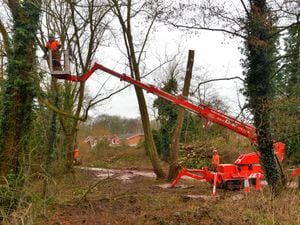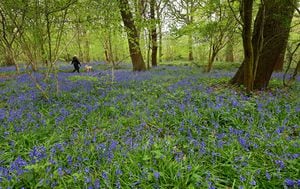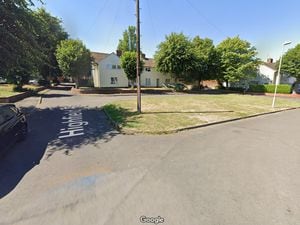Dudley nature reserve reopens after diseased trees removed
An ancient Dudley woodland sealed off from the public following an outbreak of a deadly tree disease has been reopened.

Alder Coppice, in Sedgley, one of the largest ancient woodlands in the West Midlands, was fenced off for a month while Dudley Council contractors dealt with 42 trees suffering from ash dieback.
Thirty-two trees at the 25-acre site had to be felled after succumbing to the disease, while a further 10 were cut back in the hope that they can recover over time. A number of saplings have been planted in place of the lost trees.
Alder Coppice, off Northway, is one of 142 ancient woodlands in the West Midlands, and one of just 10 covering more than 20 acres.
Simon Biggs, chairman of the Friends of Alder Coppice, said volunteers would be assessing the state of the woodland before deciding what restoration work would be needed.
"Obviously some of the paths will need some repair and this may take some time," he said.
"The contractors have very helpfully left us piles of logs so we can continue our work on pathway construction and also wood chip as a top dressing for pathways."
Mr Biggs said the Friends group would need to talk to Dudley Council before drawing up a recovery plan.

"The long road back for the woodland to once again become one of the best 10 bluebell woods in the Midlands starts here," he said.
"We have a replanting programme planned for the autumn, with three trees being planted for every one removed."
Mr Biggs said the extra light created by the removal of the trees could lead to new wild flowers growing.
"Nature has a way of putting itself right and I’m confident that with our help, Alder Coppice will thrive again," he said.
Ash dieback is a fungus that spreads quickly through the air, with the wind carrying spores of bacteria. The spores settle on the tops of the ash trees and corrode the trees from the top down, also weakening their structure.
The maintenance work was originally due to have been completed by the end of March, but was delayed by heavy rain.
While the coppice was closed, the council also took the opportunity to carry out other woodland work, including the management of 20 willow trees and the coppicing of hazel, a traditional technique used to improve growth.
A programme to plant more than 100 native trees is planned for later this year to help replenish areas where the trees have been removed.
The council has been working closely with the Friends of Alder Coppice.
Councillor Patrick Harley, leader of Dudley Council, said ash dieback was a national issue affecting trees all over the country.
“We understand the public may think this is a drastic move and while we would never choose to lose any trees, the felling of the diseased trees is essential,” he said.
“We simply have no choice but to do this work to protect and preserve the green space and maintain public safety."





